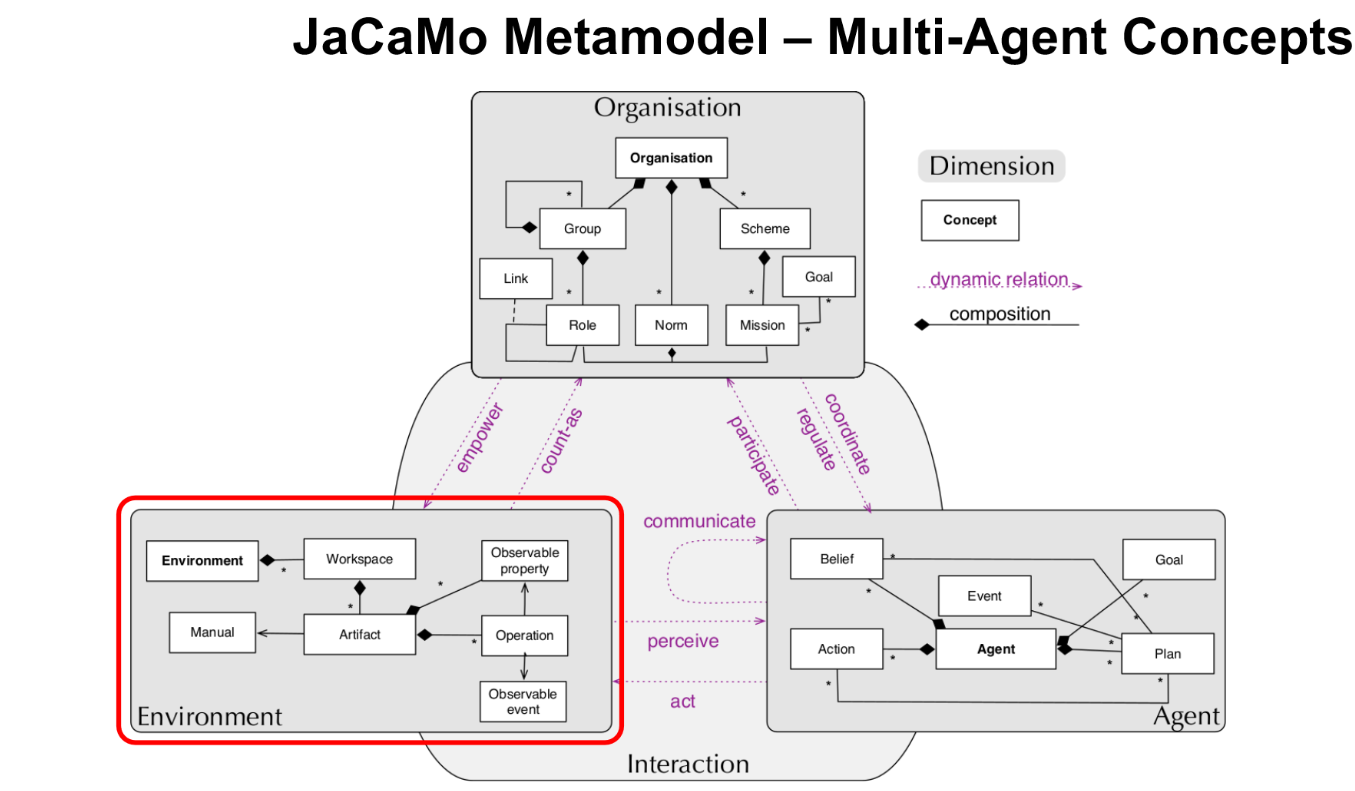JaCaMo
- Agent Framework
- https://jacamo-lang.github.io/
- repo: https://sourceforge.net/projects/jacamo/
- written-in: java
- related: CArtAgO Jason Multi Agent Oriented Programming Moise
- docs: https://github.com/jacamo-lang/jacamo/tree/main/doc
Summary
- agents are programmed in Jason [2] using the AgentSpeak language; organisations are specified in Moise [3] in an XML-based document; and environments are coded in Java using the CArtAgO API

We assume that roles cannot live autonomously: they exist in the system in view of the interaction. We follow the ontological model for roles proposed in [6], and brought inside the object-oriented paradigm in [4], which is characterized by three aspects: (1) Foundation: a role must always be associated with the institution it belongs to and with its player; (2) Definitional dependence: the definition of the role must be given inside the definition of the institution it belongs to; (3) Institutional empowerment: the actions defined for the role in the definition of the institution have access to the state of the institution and of the other roles, thus, they are called powers; instead, the actions that a player must offer for playing a role are called requirements. The agents that will be the role players become able to perform protocol actions, that are powers offered by a specific role and whose execution affect the social state. On the other hand, they need to satisfy the related requirements: specifically, in order to play a role an agent needs to have the capabilities of satisfying the related commitments – capabilities which can be internal of the agent or supplied as powers as well.
Resources
- Goal-Oriented Test-Driven Development
- Multi Agent Oriented Programming
- Multi Agent Oriented Programming the Ja Ca Mo Platform